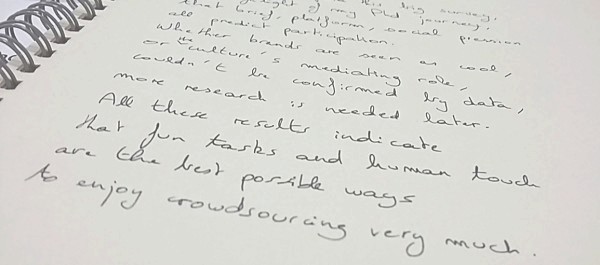
Damien Henry presenting his work at the “Prix du Mémoire Digital” in Paris, France
My activity leads me to speak to a lot of Masters or PhD students who explore the crowd economy. Actually, at eYeka we receive so many interview requests that I am now sending standard replies with links to the most common answers (Why do brands crowdsource? Why do consumers participate? etc, for which a lot is available online and in academic literature). But some research projects stand out as really original and interesting. After sharing a good Masters thesis of a student of mine who worked on women’s pro sports, this post is a Q&A with a French designer, Damien Henry, who completed his thesis (not under my supervision).
Entitled “Crowdsourcing: Can Graphic Design Become Uberized?“, his already award-winning thesis is a rare piece of research that explores the pros & cons of crowdsourcing from a designers’ point of view. While I do not endorse all his findings or POVs, I believe it his work is worth being shared beyond the French-speaking world. So I’m translating a slightly edited English transcript of our conversation (images and links have been added by myself). Continue reading →






